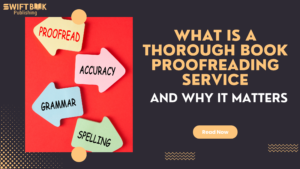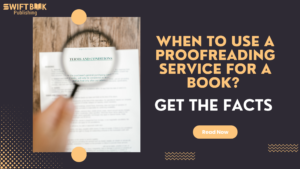Determining the Cost to Publish a Book in the UK involves various factors, including the choice between traditional publishing and self-publishing routes. For traditional publishing, the financial burden largely falls on the publisher, which covers costs from editing to distribution. However, the odds of getting accepted by a traditional publisher can be quite slim, prompting many authors to consider self-publishing as a viable alternative.
In the realm of self-publishing, expenses can vary significantly based on the quality of services required, such as professional editing, cover design, and marketing. The cost of publishing a book in UK may range widely, with some services offering flexible payment plans. Authors have the autonomy to allocate their budget according to their priorities, whether that’s in the quality of the paper or the aggressiveness of the marketing campaign.
Apart from the production costs, authors should consider the potential returns on their investment. Self-publishing platforms often advertise high royalty rates, implying that authors could earn more per sale compared to traditional publishing. However, this does not account for the upfront costs that can mount quickly, from developmental editing to securing an ISBN. Each decision in the publishing process will impact the total cost and the final profit margin for the author.
Overview of Publish a book in the UK
Publish a book in the UK can entail several costs, which vary widely depending on the chosen route. Self-publishing is often seen as the most cost-effective option, yet it involves expenses that authors should carefully consider.
- Editing: It is crucial to have a well-edited manuscript. Prices can range substantially, but authors might expect to pay around £300 for editing services.
- Proofreading: Following editing, proofreading is essential. This can cost around £500, depending on the manuscript’s length.
- Cover Design: The book’s cover is the first impression a reader gets. Designing costs for both ebook and print can reach approximately £320.
- Printing: For physical books, printing is a necessary cost. Each copy may cost about £3.70 to manufacture.
The above services compile the core costs that are likely to be incurred during the self-publishing process. How Much Does It Cost to Publish a Book in UK provides a detailed breakdown; however, costs can vary, and authors might sometimes find more competitive pricing.
Further to these direct costs, authors might also consider marketing, ISBN purchase, and distribution costs, among others. It is not uncommon for authors to spend between £500 and £1200 overall, but the spectrum can widen depending on the level of professional services utilized. Additionally, a dedicated team of editors, designers, publicists, and readers can offer a more comprehensive package for authors seeking extensive support, which will likely increase the investment. Authors must scrutinize what services they will receive for their money to ensure the best value while bringing their book to market.
Self-Publishing Vs. Traditional Publishing Costs
When it comes to Publish a Book in the UK, authors are predominantly faced with two pathways: self-publishing or traditional publishing. Each avenue comes with its distinct cost structure.
Self-Publishing Costs:
In self-publishing, authors bear the upfront costs, which cover various aspects of production and promotion. Here’s a breakdown:
- Editorial Costs: Approx. £500–£2,000 for professional editing services
- Cover Design: £50–£500 for a custom design
- Formatting: £100–£300 for professional formatting
- ISBN: £0 as ISBNs are provided for free by Nielsen UK ISBN Agency (*with some conditions)
- Marketing & Promotion: Varies widely; authors can spend from a few hundred to several thousand pounds
Traditional Publishing Costs:
An author generally does not incur any direct costs when working with a traditional publisher. However, they do often face:
- Longer Timelines: It can take years from manuscript acceptance to publication
- Less Creative Control: Publishers have the final say on most aspects of the book
- Smaller Royalties: Traditionally published authors typically receive 8-10% royalties on paperback sales and up to 25% on eBook sales
It’s crucial to weigh the financial implications and assess the level of control and involvement an author desires before deciding which publishing route to take. The self-publishing path demands upfront investment but potentially offers higher returns and more creative freedom, whereas traditional publishing reduces financial risk but also decreases potential earnings and control.
Cost Breakdown for Self-Publishing
Self-publishing in the UK can vary significantly in cost, depending on the level of professional services an author opts for. Here’s what they can expect to pay for each stage of the self-publishing process.
Editing and Proofreading
Authors should factor in the costs for editing and proofreading services to ensure their book is error-free and professionally polished. On average, editing can cost around £300, while proofreading may come to a total of £500 for a standard 300-page manuscript. For more details, one can explore the cost implications at Book Beaver.
Cover Design
The book cover is essential for making a good first impression. Authors may find themselves paying about £320 for professional cover design services that include both ebook and print versions.
ISBN Purchase
To sell a book in the UK, it’s necessary to have an ISBN, which can be obtained for a fee from agencies like Nielsen UK ISBN Agency. There may be discounts available for purchasing ISBNs in bulk if planning to publish multiple titles.
Formatting and Typesetting
Typesetting and book formatting are vital for creating a professional-looking book. This stage can cost between £500 and £1,200 based on the book’s complexity and length, as well as the designer’s expertise.
Marketing and Promotion
Marketing and promotion are crucial for gaining visibility in the bustling market, and costs can vary widely. Authors might begin with a budget of £500 and upward, investing in advertising, promotional materials, or hiring a marketing specialist.
Printing Options
The choice between print on demand (POD) or a traditional print run will affect the unit cost per book significantly. POD might see authors paying approximately £3.70 per book, while bulk printing could reduce costs but requires upfront investment.
Each of these stages cumulatively adds to the cost of self-publish a book in the UK, and individual choices will ultimately determine the total investment required.
Cost Breakdown for Traditional Publishing
In traditional publishing in the UK, authors typically encounter specific out-of-pocket expenses that are absorbed by the publisher. These costs are often recuperated before any royalties are paid out.
Agent Fees
Agents play a crucial role in traditional publishing, primarily handling contract negotiations between authors and publishers. For their services, agents typically charge a commission of 10-20% on domestic sales and 20-30% on international sales. These fees are deducted from the author’s royalties and advance payments.
Publishing House Costs
Publishing houses bear the brunt of production costs, including payments for editors, cover artists, formatters, and other essential roles integral to the publication process. While these costs do not directly affect authors’ pockets, they are pivotal in determining an author’s royalty rate, which usually ranges from 7.5% to 15% for hardbacks and 6% to 12% for paperbacks.
Marketing and Advance Fees
The marketing and promotion budget can vary significantly, but most traditionally published authors can expect the publisher to invest in these activities. The advance against royalties given to authors is also a cost to the publisher. The advance is essentially a pre-payment of royalties, which the author must ‘earn back’ before receiving further royalty payments. Advances can range from a few thousand pounds to much larger figures for highly anticipated books.
Ebook Publishing Costs
Ebook publishing in the UK is a cost-effective option for authors aspiring to deliver their content to a wide audience. The primary expenses are associated with digital formatting and distribution fees.
Digital Formatting
Digital formatting is a crucial step in ebook publishing. It involves converting the manuscript into formats such as EPUB or MOBI, which are widely supported by ebook readers. Average pricing for professional formatting services varies, typically ranging from £50 to £300, depending on the complexity of the book’s layout and whether it includes images or tables.
Distribution Fees
Distribution fees come into play when authors opt to distribute their ebooks through various platforms like Swift Kindle Direct Publishing or Apple’s iBooks. While many of these services operate on a royalty-share basis instead of upfront fees, they do withhold a percentage of sales—usually around 30% to 65% of the retail price— as their fee for rendering their services. Authors should note that opting into exclusive distribution agreements can potentially reduce these fees.
Additional Considerations
When self publish a book in UK, authors must be mindful of not just the obvious costs but also the ancillary expenses that can accumulate. These can include the creation of illustrations and the securing of legal protections, which are crucial for a professional finish and for safeguarding one’s work.
Illustrations and Graphics
Incorporating illustrations and graphics can significantly enhance a book, especially for genres such as children’s literature or visually-driven works. The complexity of the graphics and the reputation of the illustrator will influence the cost. For instance, bespoke illustrations may range from £50 to several hundred pounds per image.
Legal Fees and Copyright Registration
Navigating legal fees can be complex, as self-publishing authors should also budget for legal advice, particularly if their work quotes third parties or includes images not created by the author. Copyright registration, while not mandatory, may cost around £50, ensuring legal ownership and protection against infringement.
Funding and Investment Options for Authors
Securing adequate funding is a crucial step for authors in the UK aiming to publish a book. Exploring diverse financial avenues such as crowdfunding and official grants can provide the necessary capital to bring a literary project to fruition.
Crowdfunding
Authors may tap into the crowdfunding model to raise funds for their book projects. By presenting their work on platforms like Kickstarter, they can attract financial backing from a community of supporters. Typically, these campaigns span one to three months and involve considerable planning, yet can be highly effective in funding books.
Grants and Subsidies
Alternatively, authors might seek financial aid through grants and subsidies. Organisations such as the Society of Authors offer yearly grants to writers for ongoing works, providing substantial support without the obligation of repayment, thereby easing the financial burden of the publishing process.
Summary and Final Thoughts
When investigating the costs involved in publish a book in the UK, one finds that the expenses can vary widely. It is possible for an author to spend just a few hundred pounds or soar into the thousands. On average, self-publishing a 300-page paperback could amount to approximately £1123.70. This figure considers services such as editing, proofreading, cover design, and printing costs.
A key cost component is editing, with professional services averaging around £300. Proofreading can be roughly £500, and professional cover design could amount to £320 for both ebook and print versions. Additionally, each printed copy may cost about £3.70.
On the other hand, opting for packages from publishing service providers offers distinct advantages. For instance, collaborating with a dedicated team for editorial, design, distribution, and publicity can be a significant but worthwhile investment into an author’s publishing journey.
Moreover, obtaining an ISBN from a British agency could be as economical as £30. Of course, additional services will increase the cost.
Authors must weigh the pros and cons of each aspect of the publishing process. The decision between a completely DIY approach and utilizing professional services will largely influence the overall budget. Authors need to align their choices with both their publication goals and resources available to them.







